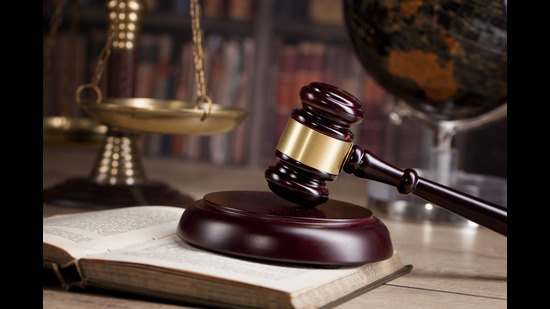No copyright in news that is freely available, OpenAI tells Delhi HC
In November, OpenAI had submitted before the Delhi high court that it had already blocklisted ANI’s domain in October, to prevent the use of new agency’s content by its AI chatbot.
Ai company Open AI on Tuesday pushed back against news agency ANI’s allegations that the company was violating its undertaking regarding the use of the latter’s content to train its ChatGPT software, asserting that the same was being used for search, which was different from training.

In November, OpenAI had submitted before the Delhi high court that it had already blocklisted ANI’s domain in October, to prevent the use of new agency’s content by its AI chatbot.
Open AI represented by senior advocate Amit Sibal submitted before a bench of justice Amit Bansal that using ANI’s content for search did not amount to infringement, since the results did not “reproduce” ANI’s material.
The lawyer argued that his client’s acts of using publicly available data for non expressive purposes to train its software did not amount to infringement, since there cannot be a copyright in the news freely available.
“The statement (made before the high court in November) says that the content is blocklisted for the purpose of training. When it is for search, it is different from training. It doesn’t reproduce any headlines. There is no violation in any way of the order passed by the court and there is no infringement since it (ANI’s content which comes after search) does not reproduce the material. No copyright in news that is freely available,” Sibal submitted.
This was after ANI represented by advocate Siddhant Kumar urged the high court to pass a favourable ruling in its copyright infringement suit filed against OpenAI, asserting that the company despite its undertaking was scraping content shared on its subscribers website, to train its ChatGPT software and generate responses. He further submitted that even the same amounted to infringement of his client’s copyright, since distribution of its content did neither divested its control over the content or the copyright.
“While they (OpenAI) may block crawling from my website, they continue to do so the same from the organisations that have sought ANI’s subscription and have entered into a licensed agreement with me. Merely if I have licensed content, I don’t cease to have copyright over those and my copyright is not divested. They (OpenAI) made a statement that they would block ANI’s domain and would no longer use its content for future training of its LLM ChatGPT,” Kumar submitted.
ANI in its lawsuit has demanded the AI firm to stop using its content, deleting stored material, contending that OpenAI has trained its language model using ANI’s content without a proper license, thereby exploiting its work for commercial gain.
The case has drawn significant attention, with various industry groups, including the Indian Music Industry, the Federation of Indian Publishers, and the Digital News Publishers Association, supporting ANI’s position. The case’s outcome is expected to have a significant impact on how copyright laws apply to AI-generated content and the protection of news agencies original work in the digital age.
OpenAI has struck deals with News Corp, Guardian and several other publishers around the world to use their content for training and also including them in ChatGPT’s responses. It has not struck any such deals in India.
In November , the high court issued summons to OpenAI but refrained from immediately restraining it from using ANI’s content after the company informed the court that it had already blacklisted ANI’s domain in October to prevent further use of its news. The court also appointed amici curiae, acknowledging that the case raised complex legal questions in light of new technological advancements.
During the hearing on Tuesday, Kumar further submitted that the AI firm could not use its content for “commercial gain” and claim the exception of “fair use” under section 52 of the Copyright Act which allows use of copyrighted material for purposes such as criticism, comment, news reporting, teaching, scholarship, or research is considered fair use and may not be considered infringement.
The next hearing is scheduled for March 28.
OpenAI, in its January reply, urged the court to dismiss the case, arguing that courts in California had exclusive jurisdiction over the matter. It also reiterated that it uses data in a “non-expressive” manner. However, on January 28, the high court declined to rule on jurisdiction separately and decided to hear arguments on both jurisdiction and merits together.






